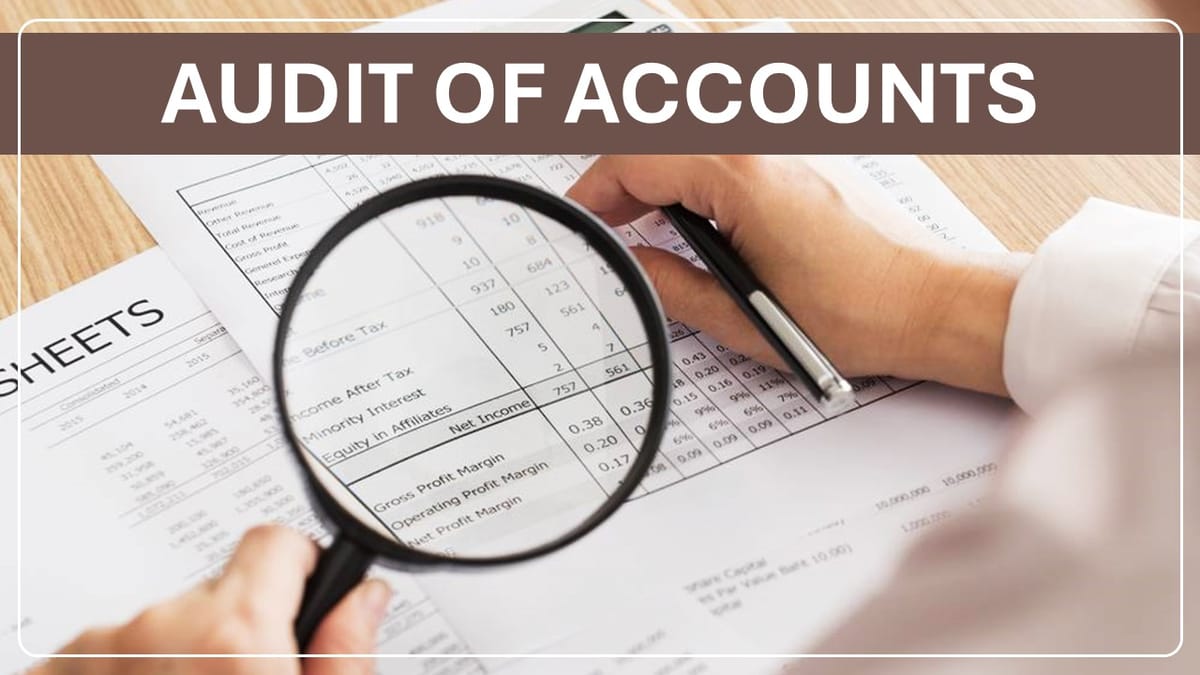A tax audit is an inspection or review of the accounts of any business or profession conducted by taxpayers from an income tax perspective.
Reetu | Aug 3, 2024 |

Tax Audit: Who needs to get his Accounts Audited?
Audits are undertaken under a variety of laws, including company audits/statutory audits conducted under company law provisions, cost audits, stock audits, and so on. Similarly, income tax rules require an audit of some taxpayers known as a ‘tax audit’.
As the name implies, a tax audit is an inspection or review of the accounts of any business or profession conducted by taxpayers from an income tax perspective. It simplifies the process of calculating income for filing of return of income.
The provisions of section 44AB are given below:
Who has to get his accounts audited on a compulsory basis – The following persons are required to get their accounts compulsorily audited by a chartered accountant –
A Person carrying on Business: If the total sales, turnover or gross receipt in business for the previous year (s) relevant to the assessment year exceed or exceed Rs.1 Crore.
A Person carrying on Business (if 2 conditions given in the next column are satisfied): If the following 2 conditions are satisfied, a compulsory audit is required only if total sales, turnover or gross receipts in business exceeds Rs.5 crore (for the assessment year 2020-21) or Rs.10 crore (from the assessment year 2021-22 onwards) – 1. An aggregate of all receipts in cash during the previous year does not exceed 5% of such receipts. 2. Aggregate of all payments in cash during the previous year does not exceed 5% of such payment. For this purpose, payment/ receipt by a cheque/ draft, which is not account payee, shall be deemed to be payment/ receipt in cash.
A Person carrying on Profession: If his gross receipts in profession for the previous year(s) relevant to the assessment year exceeds Rs.50 Lakh.
A Person covered under section 44AE, 44BB or 44BBB: If such person claims that the profits and gains from the business are lower than the profits and gains computed under these sections (irrespective of his turnover).
A Person covered under Section 44AD: If such person claims that the profits and gains from the business are lower than the profits and gains computed in accordance with the provisions of section 44AD(1) and if his income exceeds the maximum amount which is not chargeable to tax (applicable for the assessment years 2011-12 to 2016-17).
A Person covered under Section 44AD(4): If a person carrying on business is covered by the provisions of section 44AD (4) and his income exceeds the maximum amount that is not chargeable to income tax in the previous years (applicable from the assessment year 2017-18).
A person covered under Section 44ADA: If such a person claims that the profits and gains from the profession are lower than the profits and gains computed in accordance with the provisions of Section 44ADA and if his income exceeds the maximum amount which is not chargeable to tax (applicable from the assessment year 2017-18).
Note: Section 44AB is not applicable in the case of assessees who come within the purview of section 44AD or 44ADA.
In case of any Doubt regarding Membership you can mail us at [email protected]
Join Studycafe's WhatsApp Group or Telegram Channel for Latest Updates on Government Job, Sarkari Naukri, Private Jobs, Income Tax, GST, Companies Act, Judgements and CA, CS, ICWA, and MUCH MORE!"